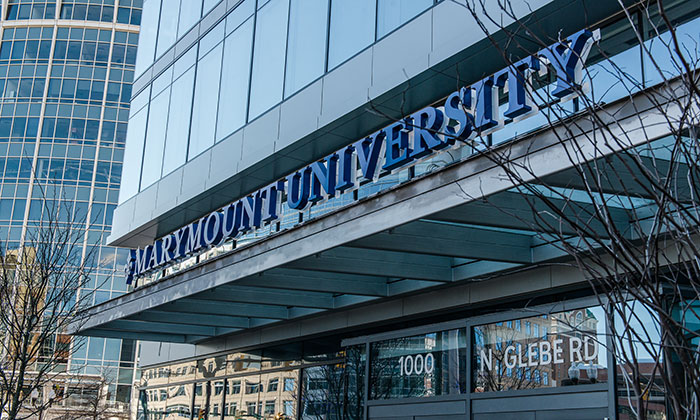In its latest strategic initiative, Transform MU, Marymount University is restructuring its existing academic programs into three highly focused Colleges, each combining disciplines to create broader educational and research opportunities. These changes are part of Marymount’s Strategic Plan, Momentum, which builds on the University’s strengths and creates market-leading learning opportunities that prepare both first-time students and adult learners for rewarding careers and fulfilling lives.
The new structure, which will be implemented immediately and completed during the fall semester, is designed to maximize interdisciplinary education and research while accommodating future student growth and program expansion to meet changing societal needs. Each of the Colleges, led by deans, will be composed of a number of interdisciplinary schools without departments that are led by school directors. Dr. Hesham El-Rewini, Provost and Senior Vice President at Marymount, stressed the importance of this new structure to students and the community.
“Our new Colleges are structured to empower our deans, school directors and faculty to build educational and research programs with agility that help our students progress and ensure employers get the talent they need.”
- College of Sciences and Humanities (led by Interim Dean Marnel Niles-Goins): represents Marymount’s foundation and liberal arts core, containing mostly undergraduate programs in the School of Humanities; School of Natural Sciences and Mathematics; and School of Social and Behavioral Sciences.
- College of Business, Ideation, Leadership and Technology: consists of a mixture of undergraduate and graduate programs in the School of Business; School of Design; and School of Technology and Innovation.
- College of Health and Education (led by Dean Kenneth Harwood): contains mostly graduate and professional programs in the School of Counseling; School of Education; School of Nursing; and School of Rehabilitation and Health Sciences.
“As COVID-19 continues to impact all levels of society, universities will be rewarded for their ability to meet the rapidly changing needs of students and employers. Finding solutions to pandemics and other pressing global issues requires interdisciplinary perspectives, which these new Colleges at Marymount will provide to our students,” said Dr. Irma Becerra, President of Marymount. “We are defining a new Marymount, one in which we play a distinct role in the Greater Washington region and make a positive difference for our collective future.”
“Our new restructuring plan is the product of extraordinary collaboration between our faculty and administration,” said Dr. Catherine England, Faculty Council President at Marymount. “We are looking forward to exploring new opportunities for innovative programs and cross-disciplinary research and teaching.”
“Our new structure means more ways for students to succeed in the job market and more impactful research projects for faculty that involve multiple disciplines of study,” Dr. El-Rewini added. “Having design, business and technology all under one roof, for example, creates unique opportunities to mix those skills and builds more well-rounded students and future professionals.”
The Executive Committee of Marymount’s Board of Trustees approved the new structure during its most recent meeting on July 29.





